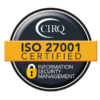Hi this is Wes again from the studios of Rare Patient Voice. I want to bring to your attention some information I read in a recent March issue of MM&M magazine. The heading says J & J will post drug list price in DTC TV ad.
Amid pressure from law makers, Johnson & Johnson said it would post the list price of one its treatments, the blood thinner Xarelto in a DTC television ad. The spot, said to run before the end of March, would include Xarelto’s list price of $450 to $540 per month along sign typical out-of-pocket costs at the end of the spot. It will also include the URL of a website where viewers can enter their insurance information to get specific costs.
J&J would be the first pharma company to put a treatment’s list price directly in a TV ad. In January, Eli Lilly began directing viewers to a website or phone number that had full pricing information, including the list price and typical costs for different insurance plans in ads for diabetes drug Trulicity.
Lilly’s approach follows proposals from drug industry trade group PhRMA which contends that putting only a list price in an ad would confuse consumers.
So interesting I really would like to hear what your thoughts are on that. What are the positives? What are the negatives? Let’s start a conversation. Should it be mandatory, or just voluntary? Will this keep healthcare costs under control? For anyone who has tried to obtain costs for procedures from hospitals, having public pricing published – real prices, not list prices – is a breath of fresh air. But there are a lot of issues with this and I’d like to hear what people think. I have to say, in general I am in favor of transparency. We had post our pricing on our website. But might this scare people off due to prices, when they might be covered or qualify for an assistance program? I don’t know. Post what your thoughts are! I’d be happy to see them. Let’s see what everybody thinks. Thanks.







